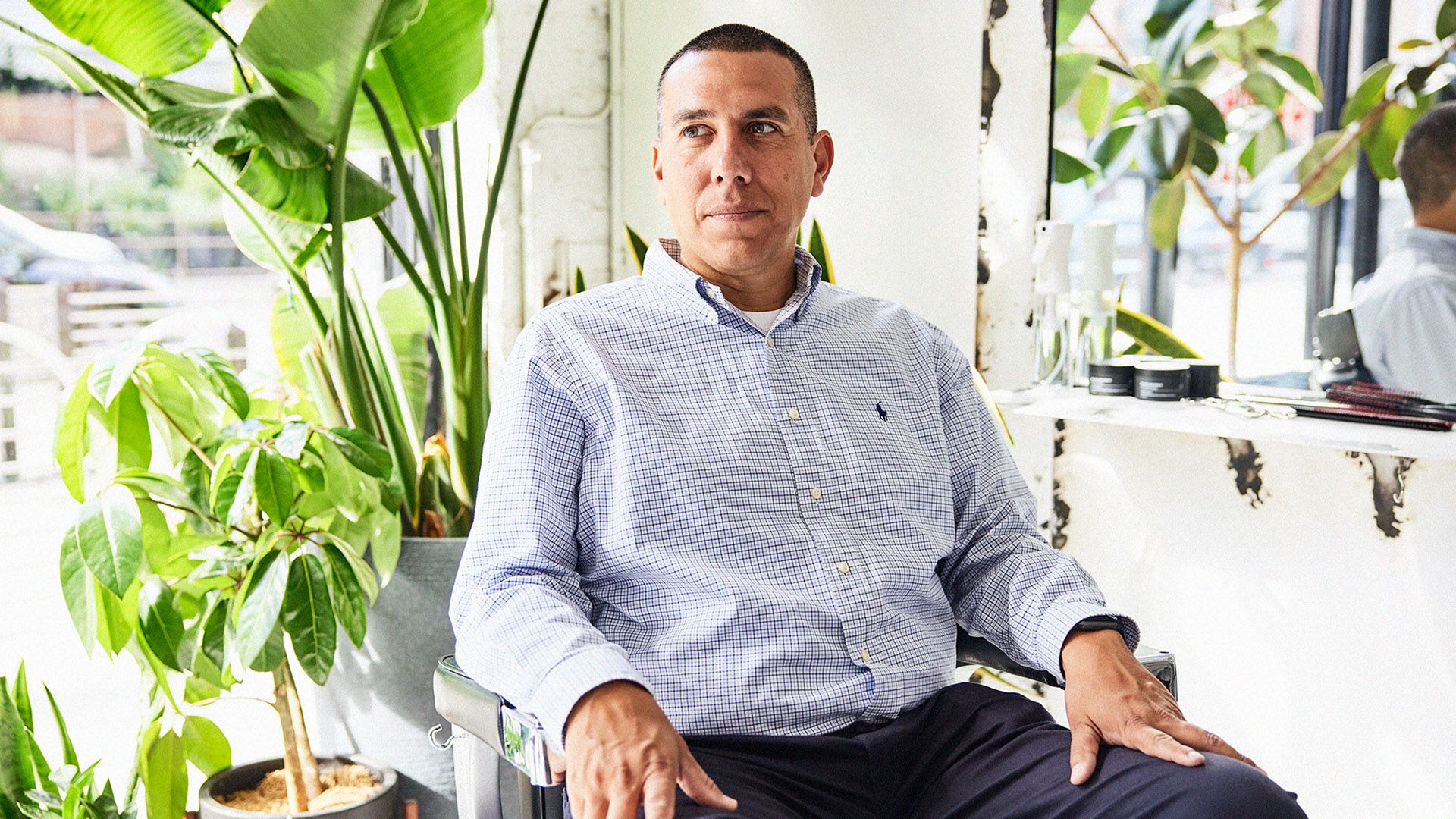

Rob’s Story: The Big Impact of Making Connections in Chicago’s Little Village
We were never trying to start a non-profit, my wife and I. We moved to Little Village in 1998. The community is historically an immigrant community. It’s the youngest, densest community in the city of Chicago. One of the things about Little Village is that it’s vibrant, thriving, culturally rich. But we’ve also struggled with historically public violence. With so many young people, and not always many options for things for these young people to do, it’s kind of been like a catalyst for gangs and gang activity. There’s been a fifty-year gang rivalry happening in the neighborhood, with the east and the west side. Our program, Beyond the Ball, is located centrally between those rival areas.
This was a very dangerous place to be. Parents wouldn’t want their kids playing out here, because they’ve been afraid to. These systemic, long-term conflicts are very traumatic. A lot of this violence is around young men – our boys. And so, Beyond the Ball is a very intentional effort around building mental health, building emotional intelligence and creating safe public spaces for the individuals in this neighborhood.
There’s this thing called Maslow’s Hierarchy of Needs, right? At the top of the pyramid, you’ve got self-actualization and self-awareness, and that’s where we’re hoping to get with our youth – so they can have these conversations around trauma and mental health. We want these young people to get to a place where they can be reflective on their own choices, and to be an asset, a productive member of society.
But to be able to see your own and other people’s needs in this way you need to satisfy the other layers of that pyramid. Foundational, basic human needs. “Have I eaten? Do I have a place to sleep?” And once those needs are met, it’s about “Do I feel safe?” In the work that Beyond the Ball does with sport and play-based community development, this is where we’re at. When we started doing this work, a lot of our programs were indoors, in controlled environments. But while we were building great relationships with these young people, and seeing a lot of progress, if the only time they were feeling safe was when we unlocked doors for them, then they would never regularly feel safe. That’s why we got into public space work.
" The whole idea is, how do we use sport and play, and the desire that young people have to do it, and the desire that their parents have for them to want to do it. "
How do we leverage that to make our public spaces in the community feel safe? The science tells us that when people are physically active for at least fifteen minutes, your brain release positive chemicals to make you feel better. It helps you to build resiliency to things like chronic stress and trauma.
The number one thing that has an impact on whether a young person grows up to be a productive member of society, is do they have a relationship with a caring adult? And so, our program allows us to create that sort of environment, with mentors that are diverse in age and gender. We create a safe space for the youth to learn about their emotions, about what they’re feeling, about trauma, and help to give tools to develop ways of thinking to handle that trauma, in a space where there are adults around who really care about their wellbeing.
Typically in this community, when people see young males, they would think “problem” or “danger”. The way that I see Movember’s Making Connections project having an impact on the culture of our community is through this intentional work with these young men. Equipping them to be emotionally intelligent, helping them understand that these stereotypes aren’t because of anything they’ve done, and to allow these young men to become leaders in their own right. We tend to develop our staff and our mentors as they age up. Not only are they participating in the program, but they’re also helping to plan and implement programming.
The goal for me is to have a safe neighborhood and have young people who are contributing to that. To have people who grow up in our community and see themselves as a solution to our shared challenges. This generation of young people, they don’t know this area – this historic area of violence and rivalry – as a dangerous place. They just know this as a place where they come to play. This is where parents want their kids to play.
Beyond the Ball is one of 5 programs Movember is helping to support through the Making Connections project. Learn more about Movember’s impact at movember.com/impact.